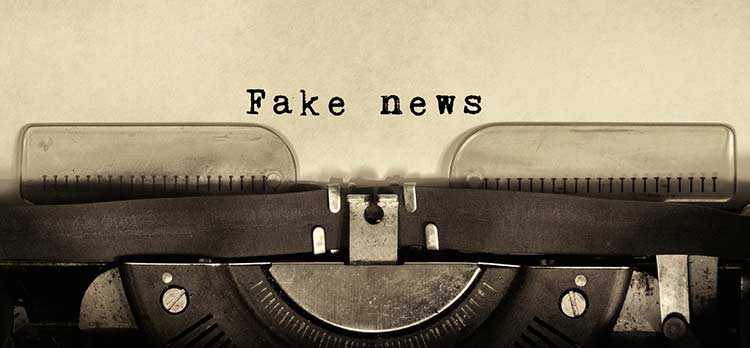The #1 Thing Fake News Can Teach Entrepreneurs About Marketing

It might have won an election and disrupted public discourse, but the massive impact of fake news also has a critical lesson for entrepreneurs.
And entrepreneur Larry Kim just showed us how.
Kim, the founder of online advertising company Wordstream and current CEO of chatbot company MobileMonkey, recently ran a test to determine if fake news could actually disrupt an election. So he spent about an hour creating a fake news site complete with a backwards CNN logo and an accompanying Facebook page.
Then he spent $50 ... and the traffic start rolling in.
An hour's work, a borrowed fake news story about paid Donald Trump protestors, and a week's worth of pocket change bought him access to almost 5,000 people. That's interesting, to be sure, scary for those who care about the quality of civic discourse, and instructive in how controversial topics drive social media engagement.
But it's not the lesson for entrepreneurs.
Rather, the lesson is in the targeting.
Entrepreneurs know that targeting the right people is key to igniting virality. Or starting a trend. Or, kicking off an avalanche of sales. That's exactly the insight that purveyors of fake news especially those who might have had nefarious hopes of disrupting an election acted upon.
"The U.S. election is remarkably easy (and cheap) to hack," Kim says. "That's because the outcome of presidential elections often hinges on just a few thousand votes (just 11,602 in Michigan, for example) in key battleground states, as we saw in 2016."
Swing voters are like early adopters ... the first people to buy, to read, to be interested in your product or company. And it's not the majority you need to be targeting, it's receptive early adopters, who will get your product or message in front of connectors or influencers who can spread it far and wide.
"To hack an election, you'll want to target the swing states of Michigan, Pennsylvania, and Wisconsin, all of which had reasonably close outcomes," says Kim.
Kim estimates that influencing the election in those states would only have cost about $1,249.58. That's the magic of targeting the right people, and of building engaging messages that deliver "free" additional social interactions and amplifications of your initial message. And that's good news for cash-strapped startup founders.
To hack growth, you'll want to target receptive consumers who can spark the beginning of an inferno of interest.
You will, however, want to do it in an ethical way, with real insights and factual marketing. Malfeasance has a way of getting out ... and therefore it's always only a short-term tactic.
And besides, it's nice to be able to sleep at night.
Article Source: http://inc-asean.com/grow/1-thing-fake-news-can-teach-entrepreneurs-marketing/
Image Source: http://duvna0llx4199.cloudfront.net/wp-content/uploads/2017/10/16123640/fakenews_750x348.jpg
VOCABULARY WORDS:
1. Discourse (n.) ~ written or spoken communication or debate
2. Avalanche (n.) ~ a sudden arrival or occurrence of something in overwhelming quantities
3. Purveyor (n.) ~ a person or group that spreads or promotes an idea, view, etc.
4. Nefarious (adj.) ~ (typically of an action or activity) wicked or criminal
5. Receptive (adj.) ~ willing to consider or accept new suggestions and ideas
6. Malfeasance (n.) ~ wrongdoing, especially by a public official
QUESTIONS FOR DISCUSSION:
1. According to the article, spreading fake information on the internet is very easy and cheap? How do you feel about it?
2. Do you think it's possible to control and stop the flow of fake news on the worldwide web? Explain your opinion.
3. How can made-up stories affect the success of a person or a company?
4. How do you fact check the news that you have acquired from the internet?